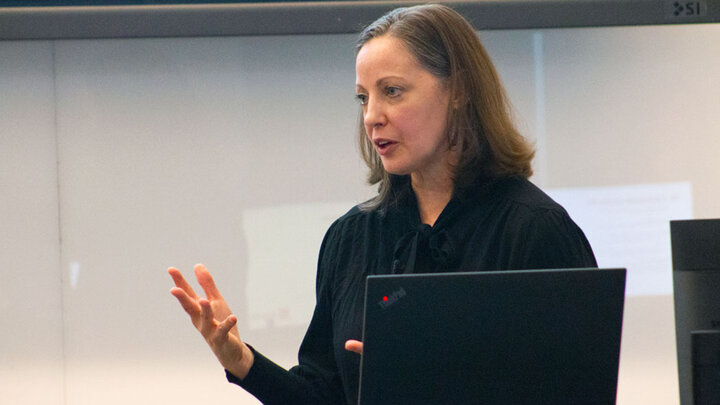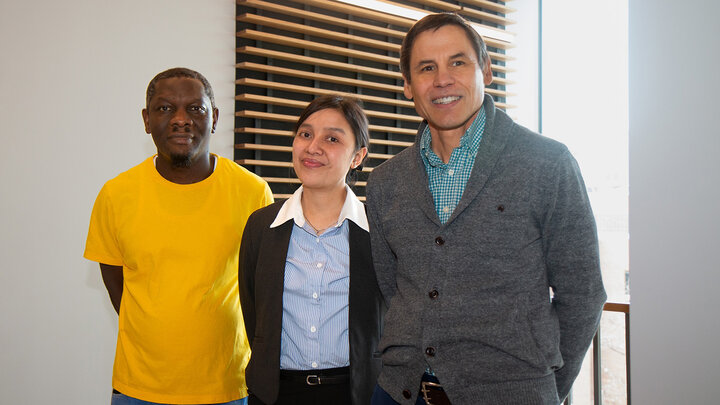Lorey Wheeler, MAP Academy director, led the first presentation of the 2024-25 Methodology Applications Series Oct. 4 at Carolyn Pope Edwards Hall.
Video is now available of Wheeler’s presentation, “Developing a Strong Research Data Infrastructure.”
Developing a robust research data infrastructure and implementing effective data management protocols are critical for any scientific endeavor. These practices not only ensure compliance with funding agency requirements, but also promote transparency and openness in science. Planning ahead will save time, resources, and many headaches. Adhering to best practices will result in high quality data that are organized, labeled and accurate, allowing data to be easily shared, understood and used by others.
Wheeler’s presentation provided best practices and practical guidance for how to successfully manage your human subjects’ quantitative data from project inception to completion. It covered four crucial steps to be implemented through the life cycle of the project to support data analysis, sharing and archiving: planning, data documentation, database setup and data cleaning.
The 2024-25 Methodology Applications Series is hosted by CYFS’ Nebraska Academy for Methodology, Analytics and Psychometrics with funding support from the Nebraska Research Initiative. This four-talk series will guide students and applied researchers in developing, maintaining and accessing high-quality data to promote rigorous and impactful research.
The series will resume Nov. 8, with a presentation by Jungwon Eum and Amanda Prokasky, MAP Academy senior research specialists, titled, “Ensuring Data Integrity Through Ongoing Monitoring and Maintenance.”




